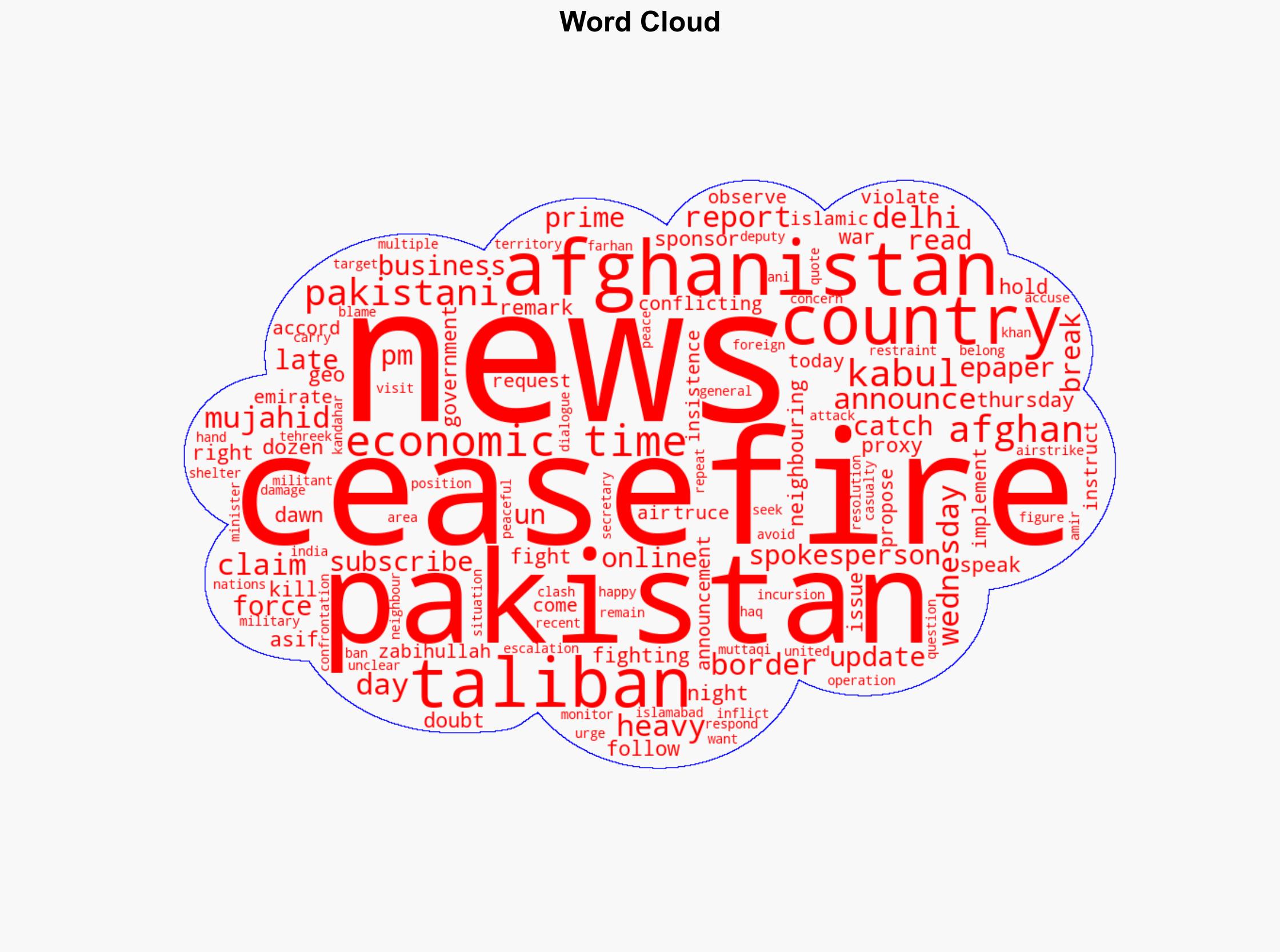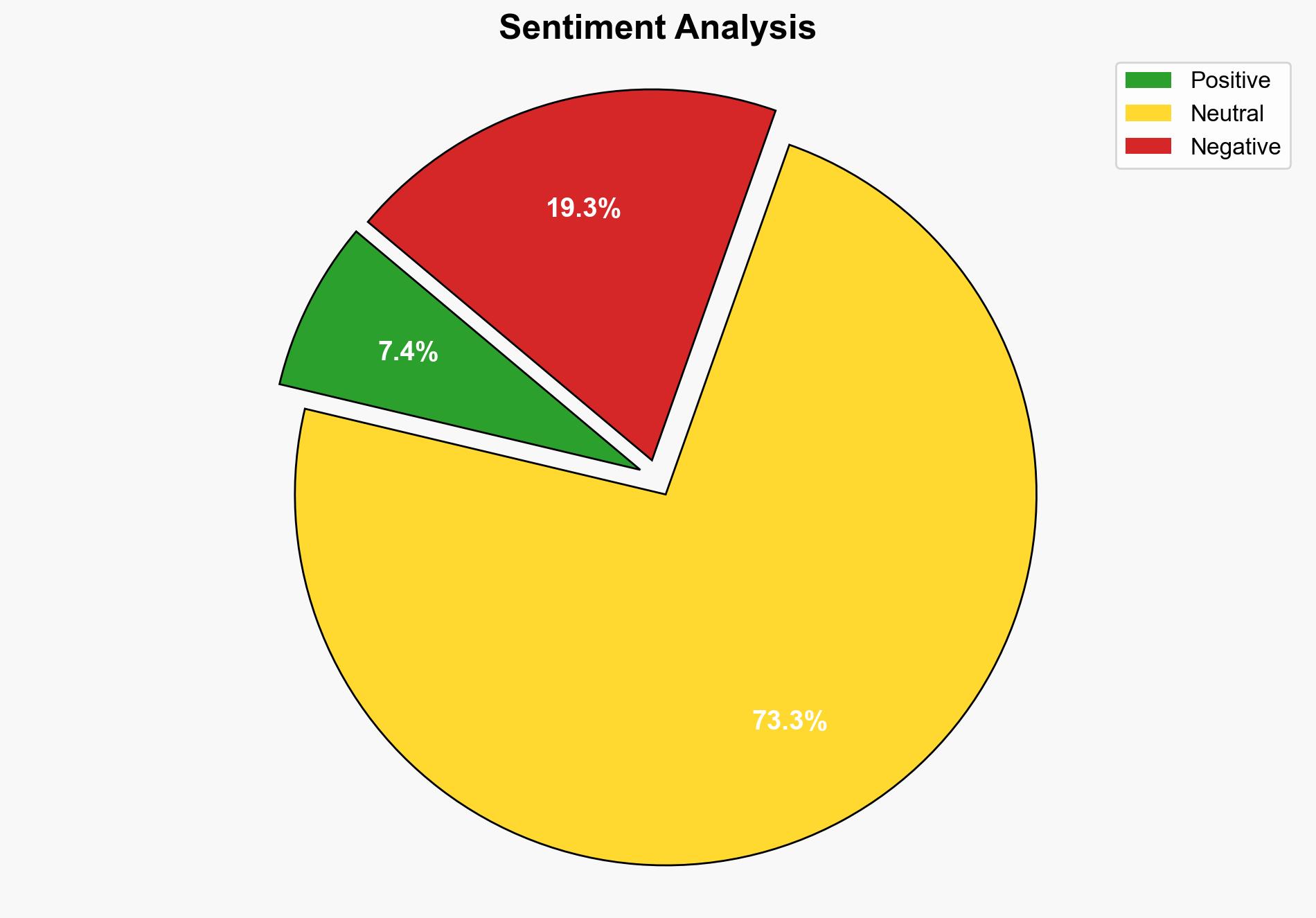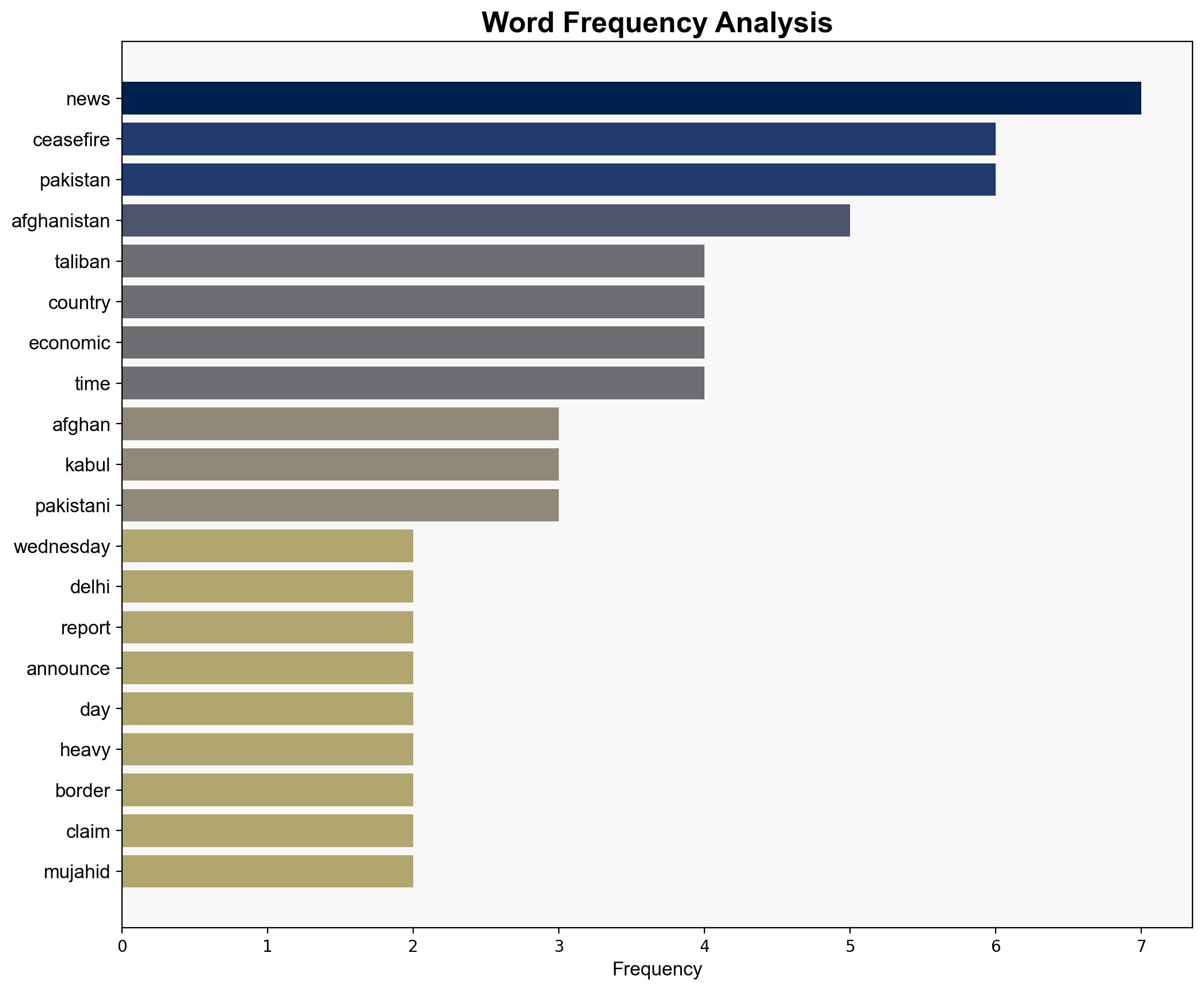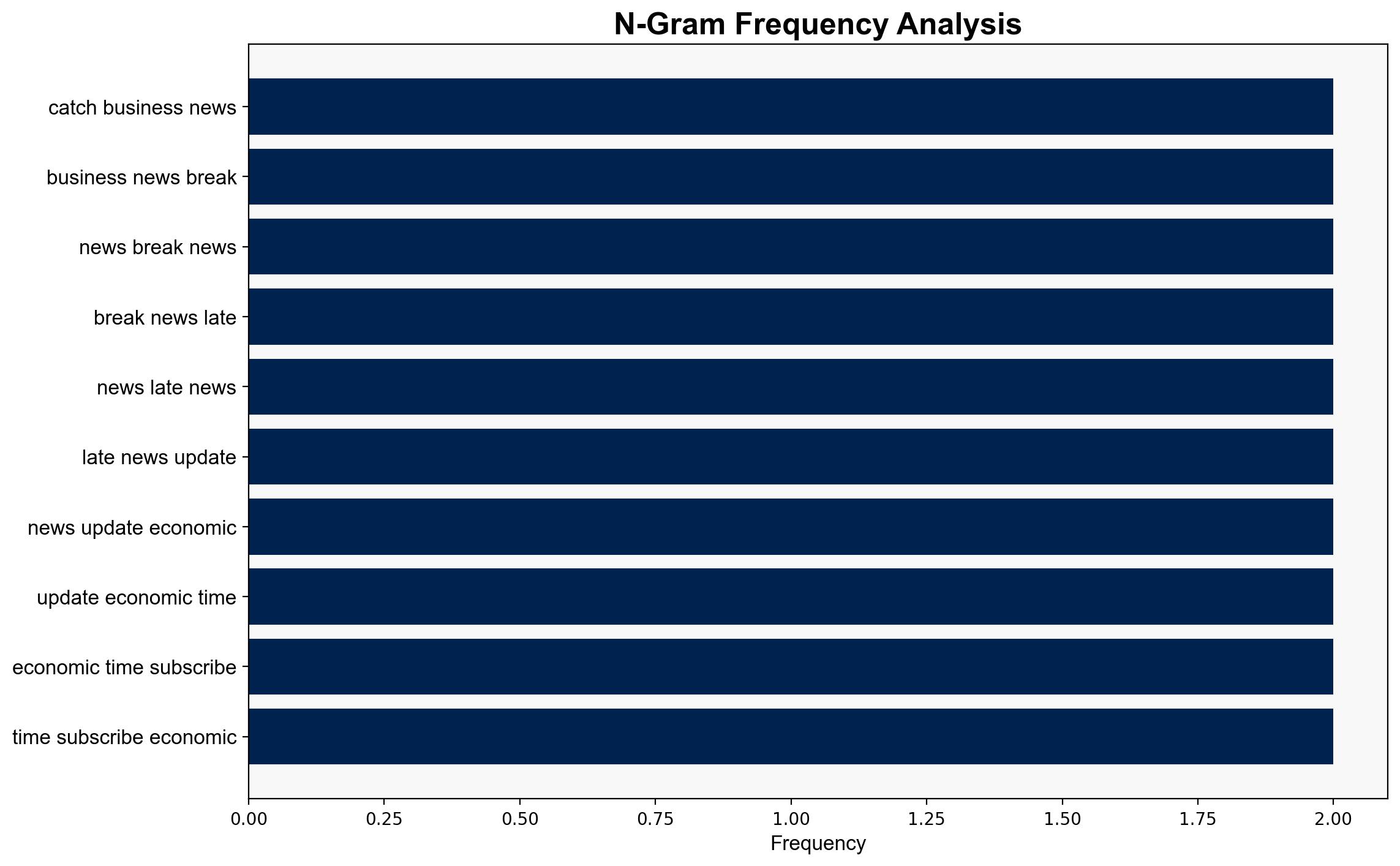‘Taliban are being sponsored by Delhi’ Pakistan slams Afghanistan for fighting India’s ‘proxy war’ – The Times of India
Published on: 2025-10-16
Intelligence Report: ‘Taliban are being sponsored by Delhi’ Pakistan slams Afghanistan for fighting India’s ‘proxy war’ – The Times of India
1. BLUF (Bottom Line Up Front)
The most supported hypothesis is that the accusations of India sponsoring the Taliban as a proxy against Pakistan are part of a broader geopolitical narrative rather than a substantiated fact. Confidence in this assessment is moderate due to the complex interplay of regional politics and historical tensions. Recommended action includes diplomatic engagement to de-escalate tensions and further intelligence gathering to clarify the situation.
2. Competing Hypotheses
1. **Hypothesis A**: India is actively sponsoring the Taliban as a proxy to destabilize Pakistan. This hypothesis suggests a strategic move by India to counter Pakistan’s influence in Afghanistan and the region.
2. **Hypothesis B**: The accusation is a strategic narrative by Pakistan to justify its actions against Afghanistan and to garner international support against perceived Indian aggression. This hypothesis posits that the claim lacks concrete evidence and serves as a geopolitical maneuver.
Using Analysis of Competing Hypotheses (ACH), Hypothesis B is better supported due to the lack of direct evidence linking India to Taliban sponsorship and the historical context of regional accusations and counter-accusations.
3. Key Assumptions and Red Flags
– **Assumptions**: Hypothesis A assumes India’s strategic interest in destabilizing Pakistan outweighs the risks of being associated with the Taliban. Hypothesis B assumes Pakistan benefits more from portraying India as an aggressor.
– **Red Flags**: The absence of verifiable evidence supporting India’s involvement is a significant red flag. Additionally, the timing of the accusations amidst border tensions raises suspicion of opportunistic narrative framing.
– **Blind Spots**: Potential covert operations or third-party involvement that may not be visible in the current intelligence.
4. Implications and Strategic Risks
– **Geopolitical**: Escalation of tensions between Pakistan and Afghanistan could lead to broader regional instability, impacting trade and security dynamics.
– **Economic**: Prolonged conflict may disrupt regional economic initiatives and investments, particularly those involving India and Pakistan.
– **Psychological**: Continued narrative warfare could exacerbate nationalistic sentiments, complicating diplomatic resolutions.
– **Cyber**: Potential for increased cyber operations targeting critical infrastructure as part of the conflict.
5. Recommendations and Outlook
- Engage in multilateral diplomatic efforts to de-escalate tensions and promote dialogue between Pakistan, Afghanistan, and India.
- Enhance intelligence-sharing mechanisms to verify claims and counter misinformation.
- Scenario Projections:
- Best: Diplomatic resolution leads to reduced tensions and improved regional cooperation.
- Worst: Escalation into armed conflict with broader regional involvement.
- Most Likely: Continued narrative conflict with sporadic border skirmishes.
6. Key Individuals and Entities
– Zabihullah Mujahid
– Amir Khan Muttaqi
– Farhan Haq
7. Thematic Tags
national security threats, cybersecurity, counter-terrorism, regional focus




